
Ryland Peter Cooder is an American musician, songwriter, film score composer, record producer, and writer. He is a multi-instrumentalist but is best known for his slide guitar work, his interest in traditional music, and his collaborations with traditional musicians from many countries.

Henry St. Claire Fredericks Jr., better known by his stage name Taj Mahal, is an American blues musician. He plays the guitar, piano, banjo, harmonica, and many other instruments, often incorporating elements of world music into his work. Mahal has done much to reshape the definition and scope of blues music over the course of his more than 50-year career by fusing it with nontraditional forms, including sounds from the Caribbean, Africa, India, Hawaii, and the South Pacific.
Joseph Spence was a Bahamian guitarist and singer. He is well known for his vocalizations and humming while playing the guitar. Several American musicians, including Taj Mahal, the Grateful Dead, Ry Cooder, Catfish Keith, Woody Mann, and Olu Dara, as well as the British guitarist John Renbourn, were influenced by and have recorded variations of his arrangements of gospel and Bahamian songs.
Private Music was an American independent record label founded in 1984 by musician Peter Baumann as a "home for instrumental music". Baumann signed Ravi Shankar, Yanni, Suzanne Ciani, Andy Summers, Patrick O'Hearn, Leo Kottke, and his former bandmates, Tangerine Dream. The label specialized in New age music but made a sharp turn to the mainstream by signing Taj Mahal, Ringo Starr, Etta James, and A. J. Croce. Its albums were distributed by BMG, which bought Private Music in 1996.
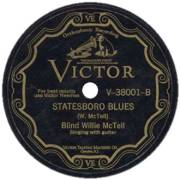
"Statesboro Blues" is a Piedmont blues song written by Blind Willie McTell, who recorded it in 1928. The title refers to the town of Statesboro, Georgia. In 1968, Taj Mahal recorded a popular blues rock adaptation of the song with a prominent slide guitar part by Jesse Ed Davis. His rendition inspired a recording by the Allman Brothers Band, which is ranked number nine on Rolling Stone magazine's list of the "100 Greatest Guitar Songs of All Time". In 2005, the Atlanta Journal-Constitution ranked "Statesboro Blues" number 57 on its list of "100 Songs of the South".
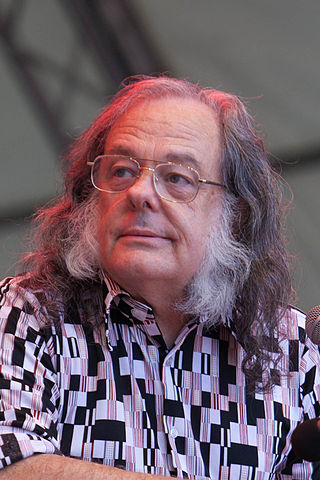
David Perry Lindley was an American musician who founded the rock band El Rayo-X and worked with many other performers including Jackson Browne, Linda Ronstadt, Ry Cooder, Bonnie Raitt, Warren Zevon, Curtis Mayfield and Dolly Parton. He mastered such a wide variety of instruments that Acoustic Guitar magazine referred to him not as a multi-instrumentalist but instead as a "maxi-instrumentalist." On stage, Lindley was known for wearing garishly colored polyester shirts with clashing pants, gaining the nickname the Prince of Polyester.
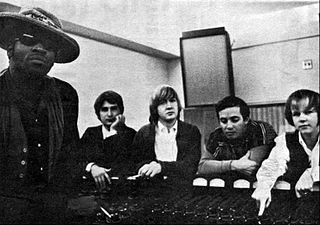
Rising Sons was an American folk-rock band formed in Los Angeles in 1965. Their initial career was short-lived, but the group found retrospective fame for launching the careers of singer Taj Mahal and guitarist Ry Cooder.

Etta Baker was an American Piedmont blues guitarist and singer from North Carolina.

Henry Thomas was an American country blues singer, songster and musician. Although his recording career, in the late 1920s, was brief, Thomas influenced performers including Bob Dylan, Taj Mahal, the Lovin' Spoonful, the Grateful Dead, and Canned Heat. Often billed as "Ragtime Texas", Thomas's style is an early example of what later became known as Texas blues guitar.

The San Francisco sound refers to rock music performed live and recorded by San Francisco-based rock groups of the mid-1960s to early 1970s. It was associated with the counterculture community in San Francisco, particularly the Haight-Ashbury district, during these years. San Francisco is a westward-looking port city, a city that at the time was 'big enough' but not manic like New York City or spread out like Los Angeles. Hence, it could support a 'scene'. According to journalist Ed Vulliamy, "A core of Haight Ashbury bands played with each other, for each other"
David Massengill is an American folk singer-songwriter, guitar and Appalachian dulcimer player. Massengill considers Dave Van Ronk his mentor, and is fond of quoting Van Ronk's tribute "he takes the dull out of dulcimer" in performance and as the title of his frequent workshops on the instrument. Massengill owns and plays dulcimers carved by Edsel Martin (1927–1999) from North Carolina. Massengill's best-known songs include: "On The Road to Fairfax County", recorded by The Roches and by Joan Baez; "The Great American Dream," performed with Joan Baez and others at a tribute to Mike Porco, former owner of the famed Greenwich Village club Gerde's Folk City; and "My Name Joe", about an illegal immigrant restaurant worker. For some years after he began recording, Massengill maintained a day job as a restaurant dishwasher. He also contributed his poignant dulcimer-centered version of "The Crucifixion" to 2001's multi-artist double-disc tribute to Phil Ochs, What's That I Hear.

Paul Barrere was an American musician most prominent as a member of the band Little Feat, which he joined in 1972 some three years after the band was created by Lowell George.
James Anthony FitzPatrick was an American producer, director, writer and narrator known from the early 1930s as "The Voice of the Globe" for his Fitzpatrick's Traveltalks.
Autumn Records was a 1960s San Francisco–based pop record label. Among the notable acts on its roster was The Beau Brummels, a band who released a pair of top 20 singles, "Laugh, Laugh" and "Just a Little".

Taj Mahal is the debut album by American guitarist and vocalist Taj Mahal. Recorded in 1967, it contains blues songs by Sleepy John Estes, Robert Johnson, and Sonny Boy Williamson II reworked in contemporary blues- and folk-rock styles. Also included is Taj Mahal's adaptation of Blind Willie McTell's "Statesboro Blues", which inspired the popular Allman Brothers Band recording.

Ernie Smith is a reggae singer, with a deep baritone voice, who had his greatest success in the late 1960s and 1970s.
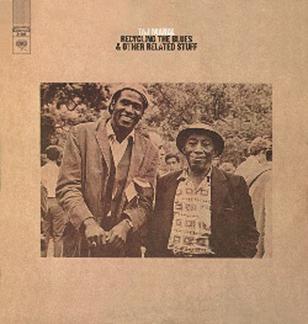
Recycling the Blues & Other Related Stuff is the fifth studio album by Taj Mahal. Tracks 1–7 were recorded live; tracks 8–11 are studio recordings. The album cover shows a photograph of Taj Majal and Mississippi John Hurt taken by David Gahr backstage at the Newport Folk Festival in July 1964.
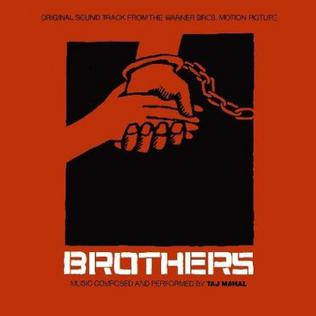
Brothers is an album by American blues singer-songwriter and instrumentalist Taj Mahal. It was recorded in August 1976 at Conway Recording Studios in Hollywood and released the following year by Warner Bros. Records. It is the soundtrack to the 1977 film Brothers, with songs that music critic Richie Unterberger described as being "in the mode that Mahal was usually immersed in during the mid-1970s: bluesy, low-key tunes with a lot of Caribbean influence, particularly in the steel drums."

Maestro is an album by American blues artist Taj Mahal. It was nominated for Best Contemporary Blues Album at the 2009 Grammy Awards.
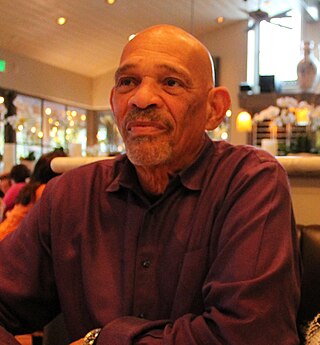
Kester Winston "Smitty" Smith was an American percussionist. Born in Granada and raised from a young age in Trinidad, he was the drummer for the Taj Mahal Trio and collaborated with jazz, blues and world musicians. He performed with and alongside Taj Mahal for over forty years. He recorded music with Taj Mahal, Geoff Muldaur, Peter Rowan, Cedella Booker, Morgan Freeman, Ellen McIlwaine, Mary Coughlan and Pinetop Perkins.














